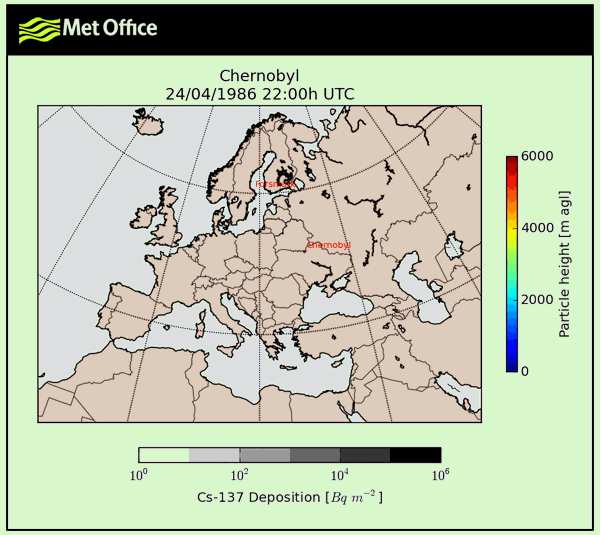(Also Ivan is crazy ! a lot of the decontamination isnt 100% and radiation upwards of 350 are present concentrated in dust, metals inside the exclusion zone. max safe radiation for a person is 100. Radio active metal is not as dangerous at it take about 20mins to reach 100 rads, disturbing and breathing in the dust is more dangerous. Outside is relatively safe as its been mostly decontaminated for tourist having a sort visit)
This post exemplifies why arguing in favor of nuclear power is impossible.
"Radiation upwards of 350 are present"...upwards of 350 what, exactly?
Then "concentrated in dust, metals"...okay, so maybe you are talking about
radioactive materials not radiation?
"Max safe radiation for a person is 100"...other than this number being substantially smaller than the 350 cited in the previous sentence, does it have
any meaning?
"Radio active metal is not as dangerous at it take about 20mins to reach 100 rads"...oh, hey, maybe those numbers you threw out were in
rads? Thanks for finally putting some sort of unit on your numbers. But wait, this sentence makes absolutely no actual sense. Radioactive metal doesn't "reach" any measure of rads. Like any source of radiation it may
deliver 100 rads. Depending on the strength of the source
as well as the distance from the source some particular piece of radioactive metal may deliver 100 rads in 20 minutes.
"Disturbing and breathing the dust is more dangerous"...well, more dangerous than the previous incredibly vague description of whatever you were trying to describe...perhaps. I mean, who can tell? But as a general rule, yes, breathing radioactive material is bad, because it leads to having an internal source, and when distance goes to zero certain equations for exposure that have distance in the denominator become very unmanageable. It's also not advisable to swallow lumps of radioactive metal.
Anyway, this is a good demonstration. People with no more idea what you are talking about than you apparently have, which is the vast majority of people, would be "suitably alarmed." Anyone who knows what they are talking about would really not have any good idea of where to start in such an argument, because pointing out your steady stream of incoherencies is just as offensive to the people you are convincing as it is to you.


